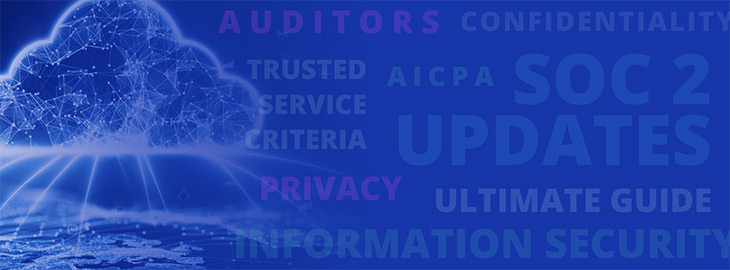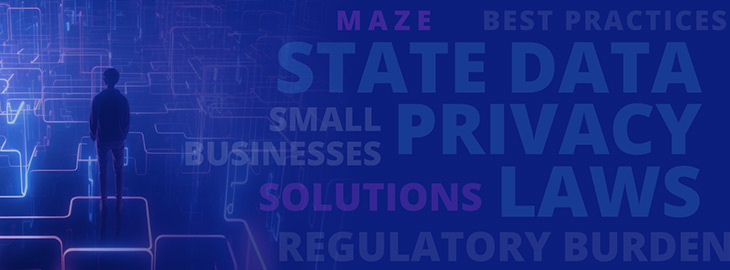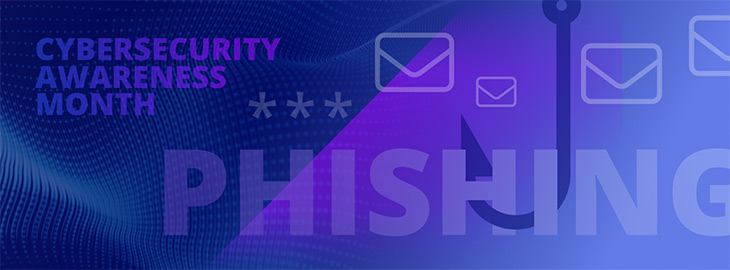You don’t have to jump through endless hoops to achieve regulatory compliance. By finding an easy way to comply with the right laws, regulations, and industry standards, regulatory compliance can offer several benefits for companies. Specific compliance requirements vary by industry and country. But in general, implementing regulatory compliance is a mandatory requirement for every sector and every company in countries with a robust business and economic landscape.
Regulatory compliance is especially important in industries with strong compliance oversight, such as financial services and healthcare, as well as sectors where issues like data protection, cybersecurity, and consumer privacy are critical to business continuity and legally compliant operations.
A variety of companies have experienced consequences of noncompliance in recent times, from oil and gas companies (BP) and manufacturing plants (Republic Steel) to telecommunications companies (WorldCom), banks (JP Morgan Chase), and consulting firms (Arthur Andersen).
An organization that achieves regulatory compliance can confidently indicate to its stakeholders that it has met specific standards and is certified by an industry-accepted regulatory body. By following the laws and regulations relevant to its business operations, it can prove its integrity, reliability, and ethics-all of which can engender stakeholder trust and strengthen its competitive position.
The Benefits of Regulatory Compliance
Maintaining compliance helps your company mitigate risks like security breaches and data losses, as well as avoid disciplinary action that could lead to license revocations, damaged reputations, lost customers, and financial penalties and losses.
A few specific benefits include:
- Keeping up with a constantly changing regulatory environment: Perfect compliance may feel like a far-off dream for companies struggling to continuously adapt and update their regulations in order to meet federal, industry, and state standards. A GRC platform with compliance programs can help you to more efficiently anticipate these sudden curves in the road.
- Protecting your business’s resources and reputation: Noncompliance can result in massive reputational losses and broken trust with your customer base. Worse, you can have your license revoked, impacting your ability to meet business objectives and goals. By maintaining regulatory compliance, you mitigate these risks and help to keep daily operations running smooth.
- Protecting you from cybersecurity threats: Cybersecurity compliance helps your company to mitigate the risk of data breaches and malware attacks internally and externally. By maintaining this type of compliance, you protect the data privacy of your company, your employees, and your customers. The National Institute of Standards and Technology (NIST) creates many of the cybersecurity regulatory compliance standards for US companies if you’re looking for a good place to start improving your cybersecurity compliance.
- Improving efficiency: Many regulatory compliance protocols require structured data storage, streamlined business processes, and regular reports on business functions. All of these work to improve your company’s efficiency over time, helping to reduce your costs.
What Does Regulatory Compliance Mean?
Regulatory compliance means an organization is aware of and aligned with all the laws and regulations relevant to its business and industry. These regulations may be set at the local, state, federal, or international levels.
Regulatory compliance differs from corporate compliance, which is about following internal policies and rules to achieve some self-set goals and objectives. However, both types of compliance are essential since they can drive the organization’s strategic direction, determine its ethical framework, and ensure accountability and transparency.
What is Regulation?
A regulation is a law enacted by a governmental body granting a regulatory agency enforcement authority. One of the most well-known regulations in the United States is the Sarbanes-Oxley Act of 2002 (SOX). SOX established stringent rules for U.S. public companies to document financial compliance and corporate disclosures. Its goal is to prevent financial fraud and protect investors and the public.
SOX also granted the Securities and Exchange Commission (SEC) enforcement authority and created the Public Company Accounting Oversight Board (PCAOB) to oversee audit rules.
Another regulation, the Health Insurance Portability and Accountability Act of 1996 (HIPAA), regulated the protection of patient information, specifically electronic protected health information (ePHI), and granted the U.S. Department of Health and Human Services (HHS) oversight authority to enforce compliance.
Some other examples of regulatory compliance regulations relevant in the U.S. business landscape include:
- Health Information Technology for Economic and Clinical Health Act (HITECH)
- Payment Card Industry Data Security Standard (PCI DSS)
- California Consumer Privacy Act (CCPA)
- European Union’s General Data Protection Regulation of 2016 (GDPR)
What Does Regulate Mean?
While “government regulation” refers to the law, “regulate” means controlling or supervising using rules and regulations. Thus, legislative and executive branches establish the laws, but government agencies enforce these laws, ensure compliance, and track noncompliance.
What is a Regulator?
Agencies act as regulators for their industries by creating guidelines and frameworks to help organizations successfully meet compliance requirements. For example, the HHS offers HIPAA guidance materials outlining the HIPAA regulations and suggested safeguards to help covered entities (e.g hospitals) implement HIPAA.
Similarly, the SEC provides links to materials that outline the steps to SOX Section 404 compliance for small businesses.
The term “regulator” also acts as a shorthand for external auditors engaged by a regulatory agency to verify a company’s regulatory compliance posture.
Why Regulatory Compliance Is an Important Part of Business Today
Financial Health
Any compliance officer will tell you that financial safety is the first benefit associated with regulatory compliance. Regulatory noncompliance can result in steep penalties for the errant organization. This is what happened in 2020 to Goldman Sachs, Wells Fargo, and JP Morgan Chase, who ended up paying fines of $7.50 billion out of a total of $11.39 billion imposed on all U.S. banks during the year.
Protection from Lawsuits
In addition to avoiding financial penalties, complying with laws and regulations protects organizations from lawsuits-whether brought by the agency or someone else (e.g., the public). For example, in 2019, between 2011 and 2019, 142 local governments filed lawsuits against businesses for noncompliance with the Americans with Disabilities Act (ADA).
Business Continuity and Competitiveness
Regulatory compliance provides numerous guideposts that show businesses what is required to succeed in their industry. Compliance laws also evolved to help create uniformity in the marketplace and enable companies to compete fairly, ethically, and on equal footing. Companies that achieve regulatory compliance may achieve a good position in their industry.
Maintain a Solid Reputation
Companies that comply with regulations and laws offer consumers a sense of security. In return, they trust such companies with their data, money, and loyalty.
Protection from Cybercrime
Higher-risk industries like healthcare and financial institutions recognize the value of the information they collect and acknowledge that they are attractive targets to malicious actors.
However, other industries sometimes feel that they are not as likely to be attacked. This mistaken assumption often leads to limited regulatory compliance focus and diminished security, increasing the likelihood of cyberattacks and data breaches.
Data breaches decrease customer retention, which can have a catastrophic financial impact on the company, and even lead to bankruptcy and closure. Regulatory compliance provides added information security by requiring organizations to adhere to rules that can protect their assets from threat actors and acts as one of many safeguards to ensure data protection.
Increased Profitability
Regulatory compliance and the audit reports proving compliance allow companies to market themselves better. SOC 1, SOC 2, and SOC 3 reports help clients trust their vendors and demonstrate ongoing SOX compliance. Without these reports, the business might lose customers and thus take a hit to its profitability.
How to Use Risk Management as Part of Regulatory Compliance Management
Creating a robust corporate compliance management system requires a thorough risk assessment and determining the tolerance for each. If a threat is unlikely to impact the organization and the cost to mitigate the potential danger is high, part of the compliance risk management process may be to accept that risk.
For example, a sole proprietor who handles low volumes of personal customer information may choose not to employ end-to-end data encryption techniques. This decision may make logical sense if the data can do minimal damage and no one is sharing data between computers. However, they may still purchase firewall protection to protect their computer from threat actors.
But, if the same business owner later hires an employee who can access the data, the risk of data loss-whether accidental or malicious-increases. So now they need to reassess the potential harm to customer data and decide if they should invest in end-to-end data encryption.
Larger organizations have a more difficult time navigating compliance regulations. They often hire a compliance consultant to determine the appropriate risk profile or establish an in-house compliance department to achieve and maintain regulatory compliance.
How To Leverage Compliance Management Software for Profitability
Despite the many benefits of regulatory compliance, regulatory requirements can feel like a quagmire dragging down profitability. For example, collecting compliance documentation and aggregating the required information costs companies money in valuable employee hours. It also requires communicating across multiple departments and ensuring cross-departmental consistency.
Resource time is the most significant cost associated with the audit process. The Chartered Institute of Internal Auditors noted in a November 2017 report that gathering audit evidence is often problematic, leading to additional time spent on the audit. Other issues are disproportionate controls and complex spreadsheets that lengthen the audit process.
The right compliance management software can ease compliance management burdens and help organizations leverage the positives of regulatory compliance while removing (or at least minimizing) the negatives. ZenComply is a comprehensive platform that empowers organizations to meet their compliance responsibilities and manage risk with ease.
ZenComply Simplifies Compliance and Drives Compliance Efficiencies
ZenComply provides a robust, integrated system of record-keeping for compliance. With this platform, all entities involved in the compliance effort have rapid access to a single source of truth. ZenComply automates tedious processes, reducing stress, saving time, and generating tangible cost savings as organizations pursue and maintain regulatory compliance.
ZenComply also eases cross-departmental communication. Task assignments and workflows enable clear accountability. Integrations with third-party tools like Jira and Slack allow for quick adoption across departments.
The platform’s role-based authorization feature provides automated controls over who can edit versus view regulatory compliance documentation. For example, all employees may be required to read the IT security policy; however, only specific individuals should be able to make changes to it.
When you rely on ZenComply, you avoid compliance issues and achieve full regulatory compliance through a streamlined, cost-saving compliance process, easy audit management, and continuous monitoring. Schedule a free demo today.




